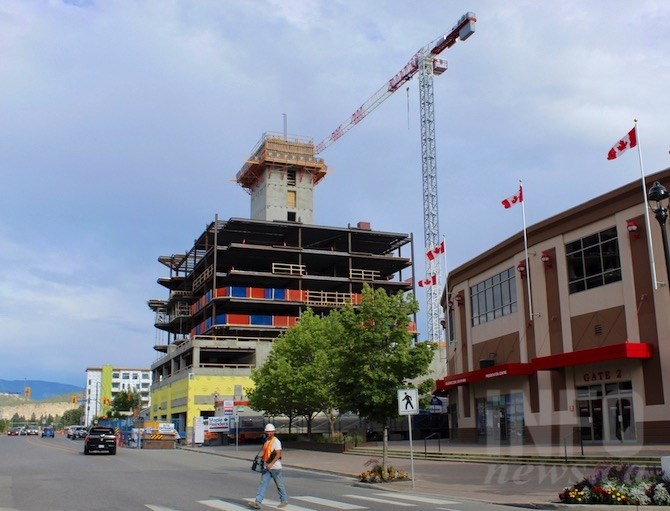
Once on the fringes of downtown, Prospera Place is the centre of a high-rise and cultural district in Kelowna - including a new tower, shown here, being built by the arena operators R.G. Properties (now the GSL Group).
(ROB MUNRO / iNFOnews.ca)
August 19, 2019 - 6:30 AM
KELOWNA - Twenty years ago, a hockey rink was built in the northern end of a somewhat sleepy downtown Kelowna.
It was a time before downtown high-rises, before the cultural district and craft breweries. Along with a new major downtown hotel, the new arena would help change everything.
Today that arena – Prospera Place – is surrounded by high-rises, including one of its own currently under construction, and is a vital part of the city’s Cultural District and Downtown Urban Centre.
But it was touch-and-go as to whether Bruce Hamilton, owner of the Western Hockey League's Kelowna Rockets, was going to stick around long enough to help make it happen.
“It got to the point we needed to see somebody do something rather than talk,” Hamilton told iNFOnews.ca.
There were lots of options to sell or move the team as it was losing money playing in the 2,600-seat Memorial Arena while waiting for a deal on a new arena to come together.
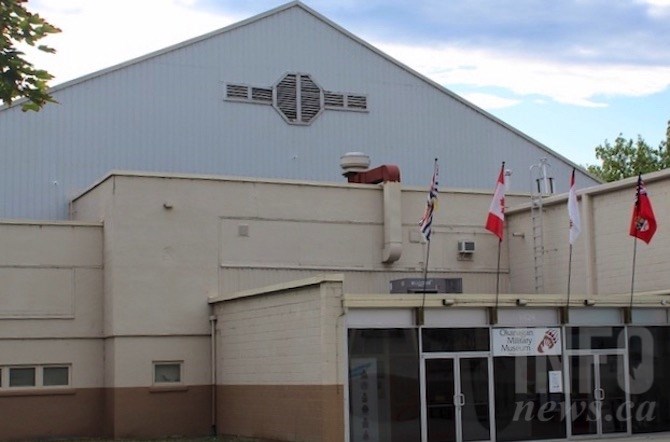
Opened in 1948, Memorial Arena was too small for a Western Hockey League team back in the 1990's and not suitable for concerts.
(ROB MUNRO / iNFOnews.ca)
EARLY DAYS
It was back in the late 1980s when this story began after the city held a referendum for an arena to replace Memorial Arena, which was built in 1945. The referendum failed.
A few years later, in 1993, Andre Blanleil ran for city council on the promise of bringing a major arena to Kelowna. He was elected but it took a second term before that dream became a reality.
First up to bat was an Edmonton developer who promised to lead the city forward.
“Along came Gordon Oxley and he said ‘I can make this happen,’” David Graham, who was the city’s director of leisure services in the 1990s, told iNFOnews.ca. “The city went through a request for proposals process, got a proposal from Oxley, entered into negotiations with him and made business terms. He did not live up to those business terms.”
One of those terms was for Oxley to pay a $100,000, non-refundable deposit to the city as a sign of good faith, Graham said.
Oxley waited until the last possible day before delivering the cheque, late on a Friday afternoon. It bounced on the following Monday and the city severed ties.
But, before that happened, Blanleil was flying back from a conference and happened to sit beside Graham Lee, the head of RG Properties —now the GSL Group — and then-owner of the Capri Hotel.
“We were both coming back from CES (Consumer Electronics Show),” Blanleil recalled. “We started talking about the P3 (Public Private Partnership) concept. We spent three hours talking about the potential for this type of building.”
Since the city was still dealing with Oxley at that time, the conversation ended with Blanleil saying he would give Lee a call if that deal fell through.
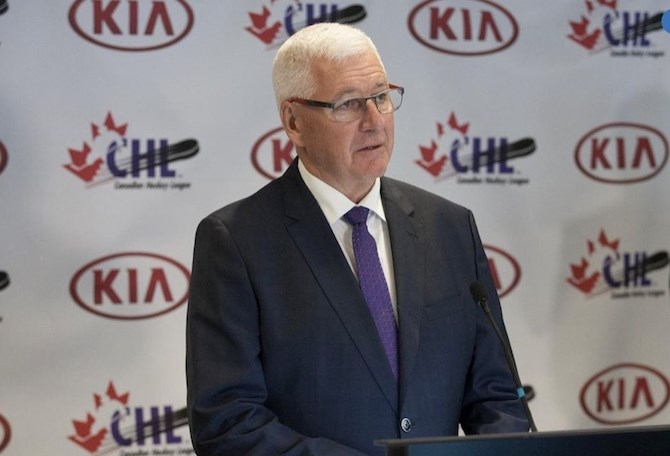
Bruce Hamilton brought the Rockets to Kelowna before there was a Prospera Place
Image Credit: TheStar.com
THE LEAP OF FAITH
“Bruce Hamilton, to his tremendous credit, took a really significant risk in coming to Kelowna before a new arena was a reality,” Graham said.
The Hamilton family started the Rockets as a Western Hockey League expansion team in Tacoma, Washington in 1991 then moved to Kelowna in 1995 – despite not having a new arena.
“We were confident a building was going to get built here,” Hamilton said. “We felt all along that, as long as there was talk, something was going to happen and a city this size was not going to be able to go along without something.”
Memorial Arena was big enough to minimize the team’s losses and they played there for four years, until the new arena, then called Skyreach Place, opened in the spring of 1999.
That doesn’t mean Hamilton wasn’t nervous.
“It was to the point where you can only swallow so much,” Hamilton said. “We were, probably, to the point where we were looking at relocating it or selling it. There were groups in Vancouver, at that time, who were very interested in buying it and moving it there. There were other cities available, then too. Prince George wasn’t in the league then, nor Chilliwack nor Vancouver.”
So, why did he stick around?
He simply believed there was enough support from city council, led by Blanleil and Mayor Jim Stuart, that the arena would eventually get built.
Still, it wasn’t easy.
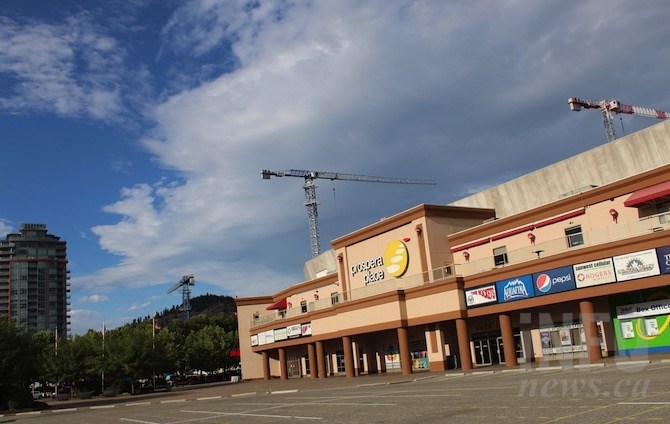
Construction cranes and high rise towers frame today's Prospera Place.
(ROB MUNRO / iNFOnews.ca)
THE LEGAL WRANGLINGS
There was huge pressure on council to get an arena, not the least of which was the risk of losing the hockey team.
“Council wanted to find a way to do it without a referendum,” Graham said.
So, another call for proposals was put out where the developer would bear most of the cost so a referendum wasn’t needed.
There had never been a Public Private Partnership of this magnitude in Canada, Blanleil said. And the B.C. Municipal Act did not easily allow for such a deal.
That meant that the whole deal had to be negotiated around the edges of the Municipal Act.
In fact, Graham said, city manager Ron Born went to the province after the deal was done to, first of all, get assurances that it was legal and, later, to help draft changes to the Municipal Act to allow for those kinds of partnerships throughout the province.
The overall cost was less than $20 million with the developer financing most of it. The city provided the land and some ongoing revenue.
It was a 30-year deal – there's still 10 years to go – that left all the capital and operating risk with the developer.
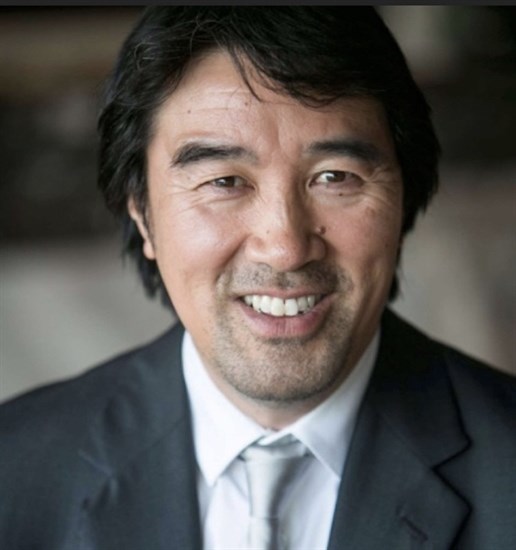
Graham Lee was the owner of R.G. Properties when it won the right to build Prospera Place. Now he's President and CEO of GSL Holdings.
Image Credit: GSLHoldings.com
WHY RG PROPERTIES?
Blanleil made his call to Lee after the Oxley deal fell through so Lee submitted a bid but finished second to a company called Axor Engineering.
That created another long delay because Axor couldn’t get financing.
After that deal fell through, Lee was asked to step up - rather than go through another lengthy proposal call - which he did.
His company, RG Properties, was focused mostly on industrial and commercial buildings but Lee loved hockey and had recently built Planet Ice, a four-rink complex in Coquitlam. Since it was a private, rather than a municipal facility, he was able to include things like a sports bar, concession stand, fitness centre and pro shop to help make it financially viable.
“Around the same time we started on Planet Ice, I was on a plane, sitting next to a city councillor from Kelowna,” Lee is quoted in a Canadian Business Journal article published earlier this month. “He was talking about this arena they were building, Prospera Place. A year later, that same councillor called me, said the developer’s cheque had bounced and asked if RG Properties could do the arena.”
That brief summary doesn’t do justice to the months of negotiating that was required to ink the deal. While Graham and finance director Cliff Kraft led the way from a City of Kelowna staff perspective, Blanleil and fellow councillor Colin Day were deeply involved with the negotiations. That level of involvement in negotiations by sitting city councillors would not be tolerated today, Blanleil said.
And there were things that Lee demanded in exchange for taking on all the financial risks.
One was to get Hamilton to sign an unheard-of 30-year lease for the Rockets.
That has worked out well for Lee, since the team has already played 90 playoff games – the equivalent of three extra seasons – in the last 20 years and hosted the Memorial Cup. That put money into Lee’s hands.
The downtown land where the arena now sits was also subdivided into three parcels. The city gets the arena and the land it sits on – along with 101 parking stalls – back in another 10 years.
Lee, however, owns the other two parcels. Plans call for two high-rise towers on those parcels, one of which is currently under construction.
The city also pays an annual sum to RG Properties, dubbed as “community ice time,” which was the only way to structure the payments under the Municipal Act, Graham said. That was necessary in order for Lee to have an income stream so he could get his financing.
Lee also put the Capri up as collateral, Blanleil said.
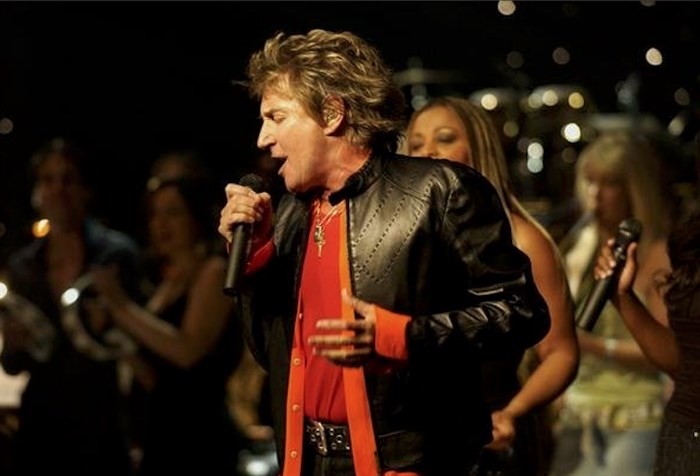
Rod Stewart was one of many big stars who played Prospera Place, including last year.
Image Credit: SUBMITTED/rodstewart.com
DID IT LIVE UP TO ITS ENTERTAINMENT POTENTIAL?
Part of the whole arena concept was that it was a “multi-purpose” facility, meaning it was more than an ice sheet.
In the early days, it attracted some big stars, like David Bowie, Cher, Elton John, Bryan Adams, Willie Nelson, Bob Dylan, Alan Jackson, Shania Twain, Santana and Rod Stewart. There have been RCMP musical rides, monster truck shows and Cirque du Soleil. But most of those big name acts were in the early years of Prospera Place.
“The venue brings big performers to a smaller market and that had never really been done before,” Lee said in the Canadian Business Journal article. “It’s a huge success for Kelowna. Prospera Place has been voted the best concert facility under 15,000 seats in Canada, by the Canadian Music Industry.”
It's unclear what he's speaking of. There is no organization called Canadian Music Industry and the Canadian Live Music association doesn’t do such rankings.
Graham, as the city’s director of leisure services, had an interest in more than sports and knows the offerings could be better for Kelowna residents.
“I think RG has not been aggressive in terms of marketing the entertainment side of it,” Graham said. “The building does really well financially because of a really successful hockey team so they haven’t had the high motivation to really promote heavily. To promote, you’ve got to take a risk. If you’re going to put on a high priced show you’ve got to put up the up-front money and hope that the tickets sell. They haven’t done as much of that as we all hoped for.”
He also noted that RG runs a similar property in Victoria. Kelowna, for example, was trying to get the Brier curling championship one year but it ended up going to Victoria.
As well, the South Okanagan Events Centre in Penticton opened in 2008. While it’s smaller than Prospera — roughly 6,400 seats for concerts vs 8,000 — it has been providing most of the big-name entertainment in the Okanagan among established facilities. It has welcomed Rihanna, Carrie Underwood, John Fogerty, Don Henley, Ringo Starr, Eric Church, Meatloaf, B.B King, John Mellencamp, Foreigner and many others.
They have Styx and Loverboy coming on Sept. 4, Ghost with Nothing More on the 21st and Rock the Rink Oct. 6. No performances are listed for Prospera until World of Dance Live on Oct. 7.
THE NUMBERS
According to city documents, the total cost of the arena was pegged at $18.5 million, with the mortgage to be no more than $11 million.
The city contributed $6 million to kick off the project and makes annual “community ice use” payments that were structured on a sliding scale and carried an inflation adjustment factor of between one and five per cent.
The first payment was $1.1 million but was around $1.2 million a year for the first 10 years (not counting inflation). For the next 10 years it dropped to $1 million and drops again to $500,000 a year for the last 10 years (again, not counting inflation).
There are buyout options every five years, but the city has always just made the annual payments.
That means, over 30 years, the city will pay more than $31 million.
The city contributes nothing towards maintenance, upkeep or operating shortfalls.
WAS IT A GOOD DEAL FOR TAXPAYERS?
Over the short term, the answer has to be yes.
Construction cost overruns and excessive operating losses are hallmarks of municipal-run arenas. That hasn’t happened here with those risks falling to RG Properties.
As an anchor tenant, the Rockets have filled an extra 90 nights with playoff hockey, plus the Memorial Cup in 2004, which boosts the money going to RG Properties. Since the Rockets don’t have rights to revenue from parking or concessions, that money all goes back into the arena.
But it’s now 20 years old and needs some spiffing up.
At the top of Hamilton’s wish list is a new LED lighting system in time for next year’s Memorial Cup since the current lights barely meet the minimum standard for TV coverage. Plus, there needs to be a new scoreboard, he said.
The glass and boards have already been replaced to meet new concussion standards.
But, will the maintenance continue for the next decade as RG’s contract winds down?
The deal requires RG to maintain and modernize the building and turn it back to the city in good condition.
“They (the city) can’t afford to have something like this, in the heart of the city where all the growth is going on, being run down,” Hamilton said.
It will also have to be kept up to standard in order to attract major sporting and entertainment events, he added.
In 10 years, the 6,886 seats for hockey will still be fine for the Rockets but Hamilton will need to know, long before then, who is going to operate the facility.
Everyone contacted for this story felt that a private operator makes more sense than turning it over for the city to run and all said negotiations on a new – or continuing – operator need to start “sooner rather than later.”
And the city seems to be anticipating some major upgrades as it has pencilled in $11.3 million for renovations after 2028 in its 10-year capital plan, although that amount is included after the current capital plan expires and is listed as a low priority.
PART OF THE CITY
Given what's happened since Prospera Place was built, it's hard to imagine why voters turned it down in a referendum.
The arena can't take all the credit for the extreme make-over of downtown Kelowna, but it's a major engine powering the region.
Downtown became attractive again to people who want to live there, spurring development of taller condominiums keeping the downtown vibrant and moving. The food, beverage and cultural attractions downtown seem to expand ever year and new hotels on the way. There's a burgeoning tech industry right downtown and more offices like Interior Health are staying put.
And of course, the Kelowna Rockets have had not just on-ice success but also turned out NHL calibre hockey players like Leon Draisaitl, Josh Gorges, Duncan Keith, Josh Morrissey, Luke Schenn and Shea Webber. More importantly, that growing culture has put Kelowna on Canada's hockey map. It's become the Muskokas of the West as dozens of NHL players make their summers here.
The arena might have been built in a sleepy downtown, but it isn't that way anymore.
To contact a reporter for this story, email Rob Munro or call 250-808-0143 or email the editor. You can also submit photos, videos or news tips to the newsroom and be entered to win a monthly prize draw.
We welcome your comments and opinions on our stories but play nice. We won't censor or delete comments unless they contain off-topic statements or links, unnecessary vulgarity, false facts, spam or obviously fake profiles. If you have any concerns about what you see in comments, email the editor in the link above.
News from © iNFOnews, 2019